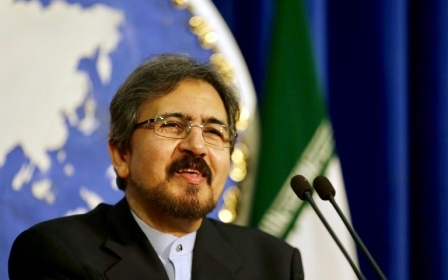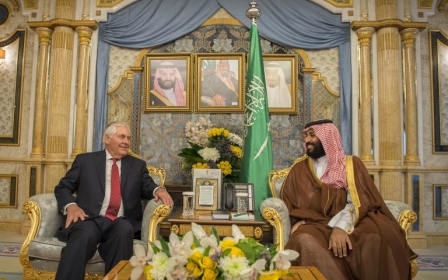Tillerson 'upset' over White House criticism on Iran and Qatar
Frustration is mounting among leading US foreign policy officials in Donald Trump's administration as they chafe at some policy and bureaucratic defeats and complain they lack independence to do their jobs, officials say.
The US secretary of state, Rex Tillerson, does not see eye-to-eye with Trump on the Iran deal and Qatar crisis, officials said.
The clash between internationalists urging the traditional US leadership role in the world and advocates of an "America First" approach has worn down foreign policy and intelligence professionals inside the government, according to the officials.
Tillerson has told friends he will be lucky to last a year in his job, according to a friend, while two officials said national security adviser HR McMaster was frustrated by what he sees as disorganisation and indiscipline on key policy issues inside the White House.
A source familiar with the situation told Reuters that Tillerson was "very upset at not having autonomy, independence and control over his own department and the ability to do the job the way the job ... is traditionally done".
The source said he had heard nothing about any possible departure, but added: "The situation doesn't seem to be getting any better, and in some respects appears to be getting worse."
RC Hammond, Tillerson's spokesman, denied Tillerson was considering leaving or that his frustrations were boiling over, saying he had "plenty of reasons to stay on the job, and all of them are important to America".
"There's a desperate need for American leadership in the world and that's where the secretary's focusing his attention," he said.
Tillerson scored a policy win last week when the administration certified, albeit reluctantly, that Iran was complying with the 2015 nuclear deal under which Tehran agreed to restrain its atomic programme in exchange for sanctions relief.
He was upset, however, by fierce internal criticism from Trump, as well as his chief strategist Steve Bannon, and White House aide Sebastian Gorka, over the decision, said another US official who spoke on condition of anonymity.
"The secretary does not feel that White House staff members should be in a position to conduct hostile cross-[examinations] of cabinet officials," the source said.
Hammond disputed the account of harsh discord between Trump and Tillerson regarding recertifying the Iran nuclear deal, saying: "I don't buy this whole thing that there are tensions. Developing public policy is about vetting out ideas," he said.
Following last month's move by Saudi Arabia, the United Arab Emirates, Bahrain and Egypt to boycott Qatar, which they accuse of supporting terrorism, Tillerson publicly asked the nations to ease the blockade, and put the onus on both sides to end the crisis.
Less than 90 minutes later, Trump accused Qatar of being a "high-level" sponsor of terrorism and suggested he had helped plan the Qatar action with Arab leaders.
"As a government we offered some confusing signals, but we’ve since been able to clear up and clarify that," Hammond said.
Tillerson talked about the challenges of his new job earlier this month, telling reporters that it differed from his former role as chief executive of Exxon Mobil Corp, where "I was the ultimate decision-maker. That always makes life easier."
"I knew what to expect and we had very long-standing disciplined processes and decision-making," he said. "Those are not the characteristics of the United States government."
New MEE newsletter: Jerusalem Dispatch
Sign up to get the latest insights and analysis on Israel-Palestine, alongside Turkey Unpacked and other MEE newsletters
Middle East Eye delivers independent and unrivalled coverage and analysis of the Middle East, North Africa and beyond. To learn more about republishing this content and the associated fees, please fill out this form. More about MEE can be found here.




